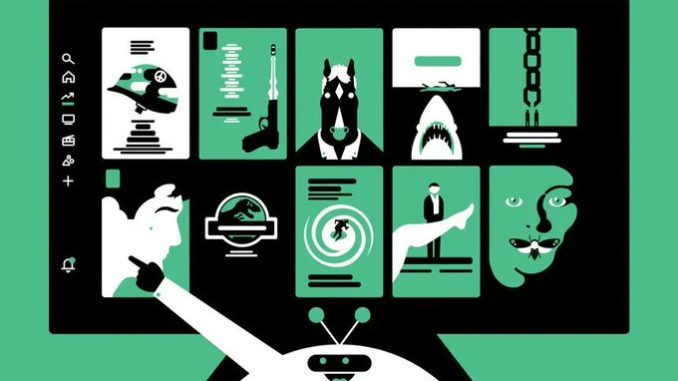
MORE OFTEN than I like, after scanning the endless carousels on streaming apps, I find myself re-watching “Seinfeld.” I attribute this to a combo of laziness and mediocre recommendation engines, which rarely highlight anything I actually want to watch.
It’s a problem that seemed custom-designed for ChatGPT, the bot made by Microsoft -backed artificial intelligence research firm, OpenAI. Over 100 million people have tried ChatGPT since its launch in November, posing it tasks as disparate as writing English essays and negotiating down internet bills. By comparison, “What movie should I watch?” seemed simple.
I told ChatGPT I enjoyed the 2013 film “Her,” whose protagonist develops a relationship with a virtual assistant. It spewed out a list of sci-fi titles like “Blade Runner 2049” and “Ex Machina.” “These movies,” it typed, “explore the relationship between humans and artificial intelligence, touching on themes such as consciousness, identity and the nature of existence.” (It gave no sign it saw the irony.)
Wei Xu, an interactive computing professor at the Georgia Institute of Technology, explained how ChatGPT managed to produce a list of legitimately comparable movies in seconds. The software, she said, is trained to spot patterns within a massive amount of text data—over 500 GBs—it scrapes off the internet. When sniffing out cinematic cousins to “Her,” it’s likely consulting sources like Reddit threads, IMDB forums, even “Best of” lists from editorial outlets. Traditional recommendation engines, said Dr. Xu, don’t have this access.
This presents issues for existing discovery platforms like Letterboxd, a social-networking site for discussing movies, and Likewise, a content-recommendation service that draws on AI and human curators. Letterboxd co-founder Matthew Buchanan told me he’s concerned by ChatGPT’s lack of transparency. To get the info it uses to make recommendations, it could be plagiarizing the work of Letterboxd users without providing credit. (OpenAI declined to comment for this article.)
